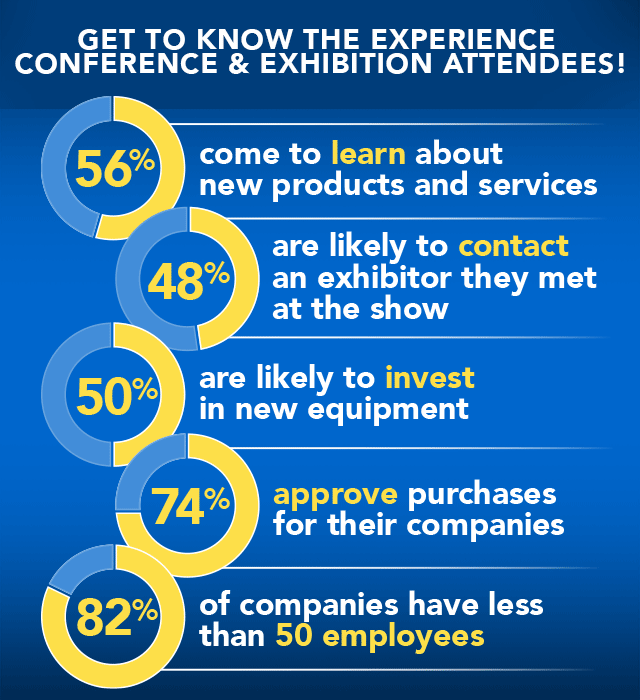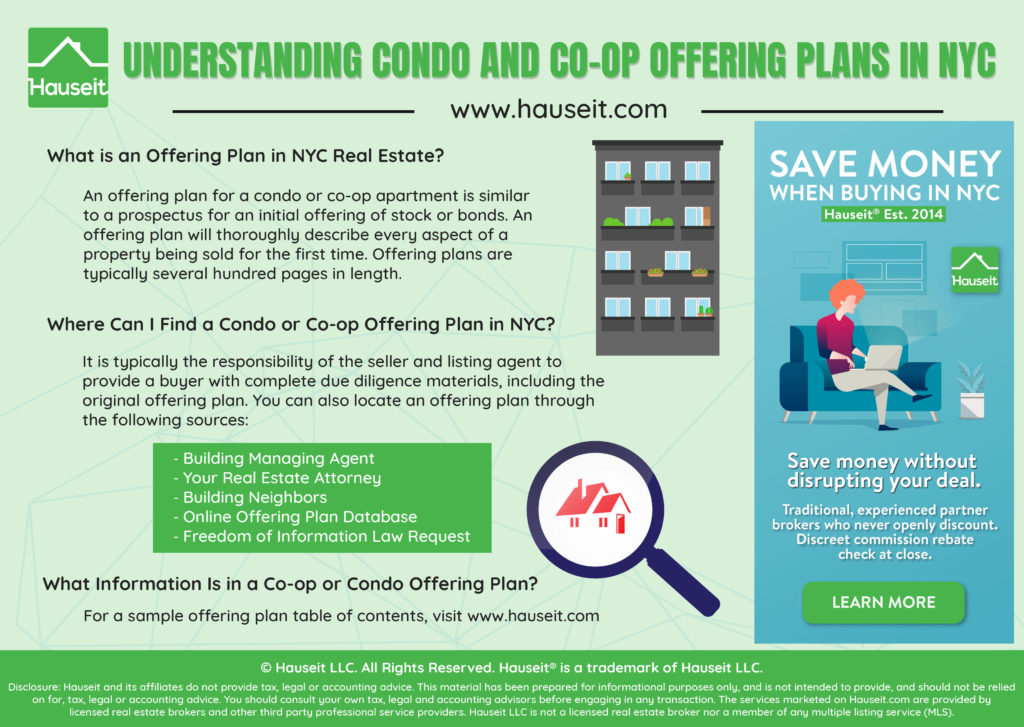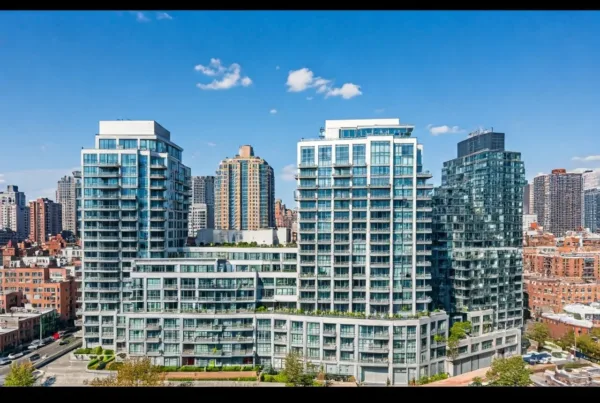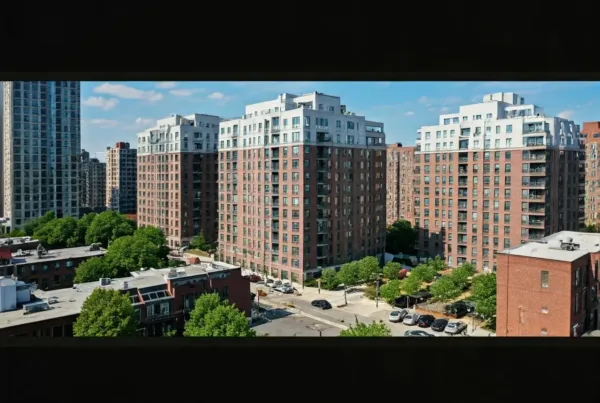Unlock the secrets to purchasing a co-op sponsor unit in NYC – everything you need to know before making the leap.
Table of Contents
Introduction to Co-op Sponsor Units
When it comes to apartment hunting in NYC, you may have come across a term called “co-op sponsor units.” But what exactly are these units, and why would someone want to buy one? In this section, we will delve into what co-op sponsor units are and shed light on why they might be an appealing option for potential buyers.
What is a Co-op?
Let’s start with the basics. A co-op, short for cooperative, is a type of building in which a group of people owns the entire property together. Each person who lives in the building owns a share of the cooperative, giving them the right to occupy a specific unit within the building.
What Makes Sponsor Units Special?
Now, onto sponsor units. Sponsor units are apartments within co-op buildings that are typically owned by the original developer. These units are different from regular co-op units because they often come with unique conditions, making them distinct from the rest of the apartments within the building.
Why Buy a Sponsor Unit?
Buying a sponsor unit in NYC can be a great option for many reasons. Let’s explore why these unique properties are worth considering.
No Board Approval Needed
One of the significant advantages of purchasing a sponsor unit is that you don’t need approval from the co-op board. This means the buying process is much simpler and quicker compared to traditional co-op units.
Potential for Better Prices
Sponsor units often come with lower price tags because they are typically sold in their current condition, also known as “as-is.” This can be appealing to buyers looking for a good deal on a property in NYC.
Where to Find Sponsor Units
When looking to buy a sponsor unit in NYC, it’s essential to know where to find these unique properties. Here are some tips on where to start your search:

Image courtesy of blog.realestaterebatesnewyork.com via Google Images
Working with Real Estate Agents
real estate agents can be a valuable resource when hunting for sponsor units in NYC. These professionals are knowledgeable about the market and can help you navigate the complexities of buying a sponsor unit. Make sure to choose an agent who has experience in dealing with co-op sponsor units, as they will be better equipped to assist you in finding the right property.
Online Listings
Another way to find sponsor units for sale in NYC is by exploring online listings. Websites like Zillow, StreetEasy, and Realtor.com often feature sponsor units that are on the market. These platforms allow you to filter your search based on your preferences, such as location, price range, and amenities. Keep an eye on these websites regularly to stay updated on new listings and potential opportunities.
The Buying Process
Before buying a sponsor unit in NYC, it’s essential to research and find a unit that fits your needs. Take into consideration factors like size, location, amenities, and price. Make sure to visit different units to compare and choose the one that feels right for you.
| Step | Description |
|---|---|
| 1 | Research co-op buildings in NYC |
| 2 | Understand the co-op application process |
| 3 | Secure financing for the sponsor unit |
| 4 | Review the co-op’s financials |
| 5 | Request and review the offering plan |
| 6 | Attend the co-op board interview |
| 7 | Close on the sponsor unit |
| 8 | Follow the co-op rules and regulations |
Making an Offer
Once you’ve found the perfect sponsor unit, it’s time to make an offer. This involves presenting a formal proposal to the seller expressing your interest in purchasing the unit. Negotiation may take place to agree on a price that works for both parties.
Closing the Deal
After your offer is accepted, the process of closing the deal begins. This includes signing the necessary paperwork, such as the sales contract and any additional agreements. You’ll also need to make the final payment for the unit, which may involve securing a mortgage or paying in cash.
Things to Watch Out For
When considering buying a sponsor unit in NYC, it’s crucial to understand that these units may be sold ‘as-is’. This means that you will be purchasing the unit in its current condition, with no guarantees for repairs or upgrades. It’s essential to thoroughly inspect the unit before making any decisions. Look out for any potential issues or maintenance needs that could affect your living experience.

Image courtesy of www.hauseit.com via Google Images
Fees and Costs
While sponsor units may offer a lower initial price compared to regular co-op units, it’s important to be aware of additional fees and costs that may come with the purchase. These can include maintenance fees, special assessments, and potential repairs or upgrades that the unit may require. Make sure to factor in these additional expenses into your budget to avoid any surprises down the line.
Summary and Conclusion
In this guide, we explored the world of co-op sponsor units in NYC and why people might be interested in buying them. We learned that co-op sponsor units are unique apartments that offer special conditions compared to regular co-op units.
Recap of Benefits
Buying a sponsor unit can be advantageous for several reasons. One major benefit is that buyers do not need to go through the typical board approval process, making the buying process much simpler. Additionally, sponsor units may often be sold at more competitive prices compared to traditional units.
Final Tips
Before deciding to purchase a co-op sponsor unit, it’s important to carefully consider all factors. Take the time to thoroughly inspect the condition of the unit, understand any additional fees or costs that may be involved, and work with a knowledgeable real estate agent to guide you through the process.
Remember, buying a sponsor unit can be a great opportunity, but it’s essential to do your research and weigh all your options before making a decision. With the right information and guidance, purchasing a sponsor unit in NYC can be a rewarding investment.
Frequently Asked Questions (FAQs)
What is the difference between a condo and a co-op?
Condos and co-ops are both types of apartments, but they have different ownership structures. In a condo, you own your individual unit and a share of common areas, while in a co-op, you own shares of the entire building along with the right to occupy a specific unit. Condos are generally more expensive to buy and to maintain, while co-ops often have stricter rules and require board approval for purchases.
Can I rent out my sponsor unit?
Whether you can rent out your sponsor unit depends on the rules set by the building’s co-op board and the terms of your purchase agreement. Some co-ops allow subletting with restrictions, while others may prohibit it entirely. It is important to review the building’s bylaws and clarify any rental policies before purchasing a sponsor unit.
Do sponsor units come with furniture?
Begin your search and start earning cash back!
Most sponsor units are typically sold unfurnished, meaning you will need to furnish the unit yourself. However, there may be exceptions where a sponsor unit is sold with some furniture included. It is essential to clarify with the seller or real estate agent whether the unit comes fully furnished or not before making a purchase.







